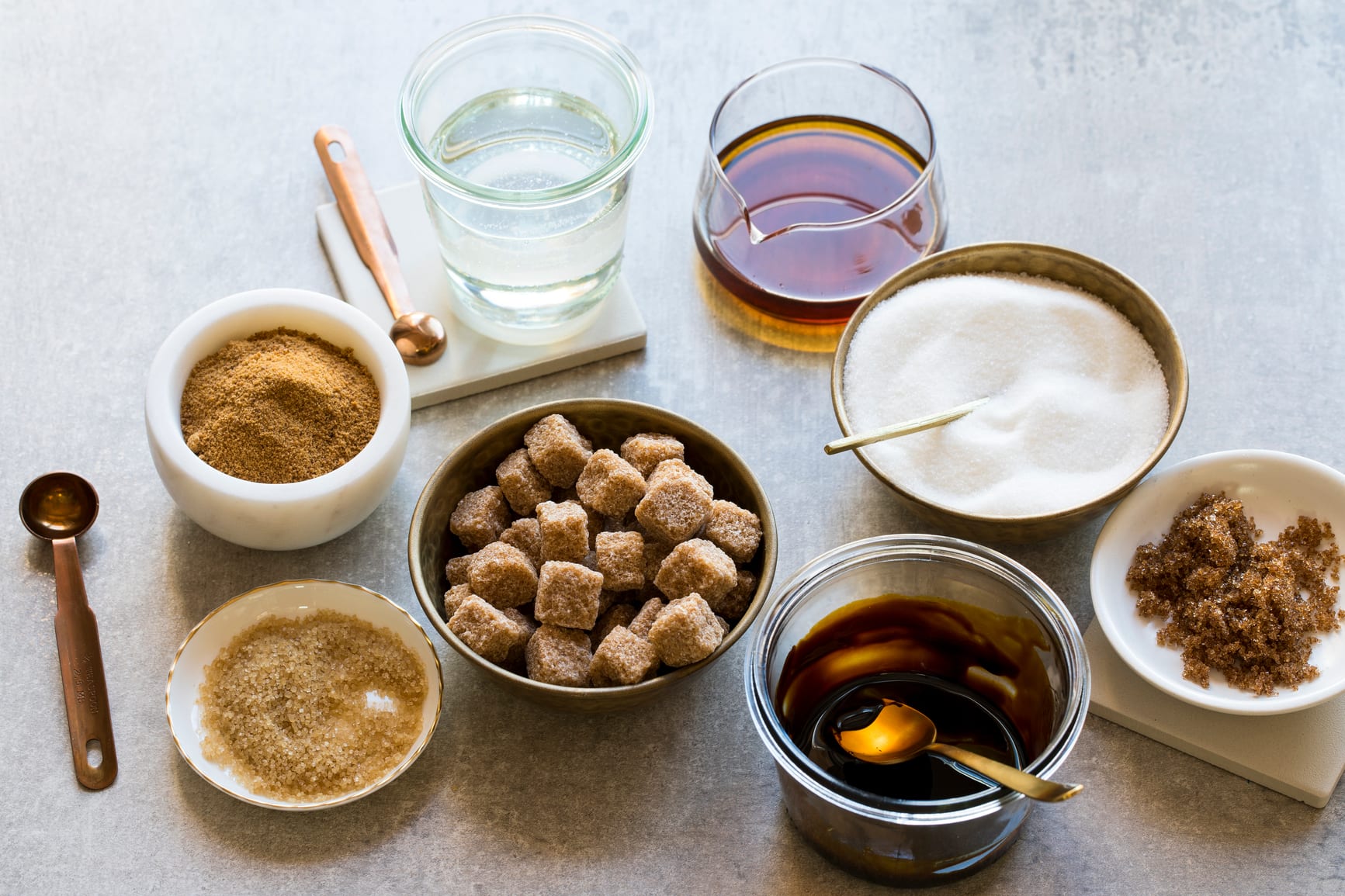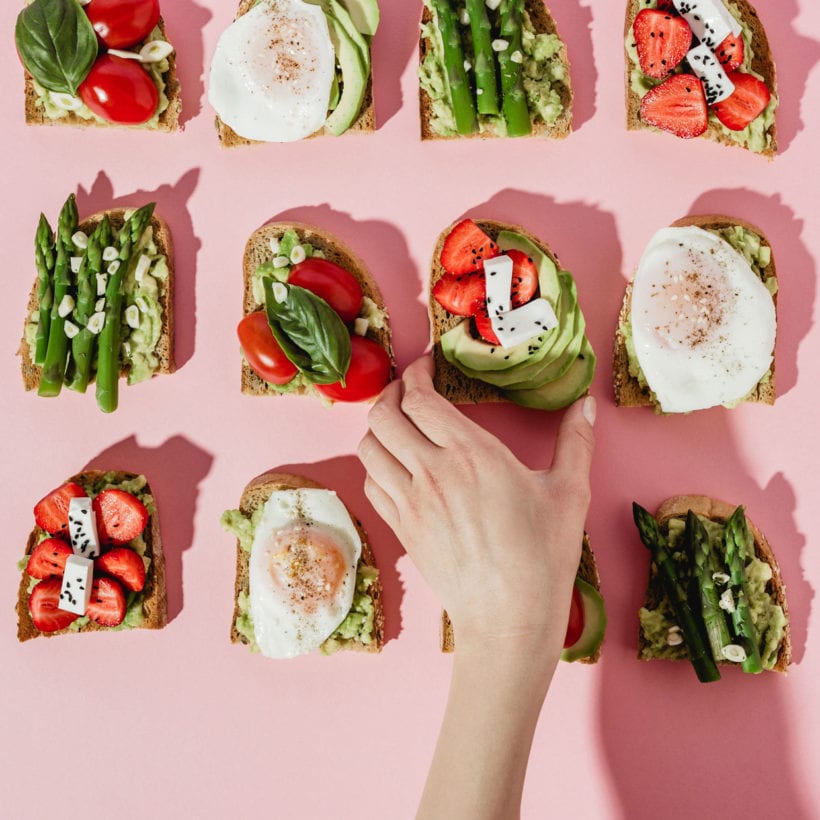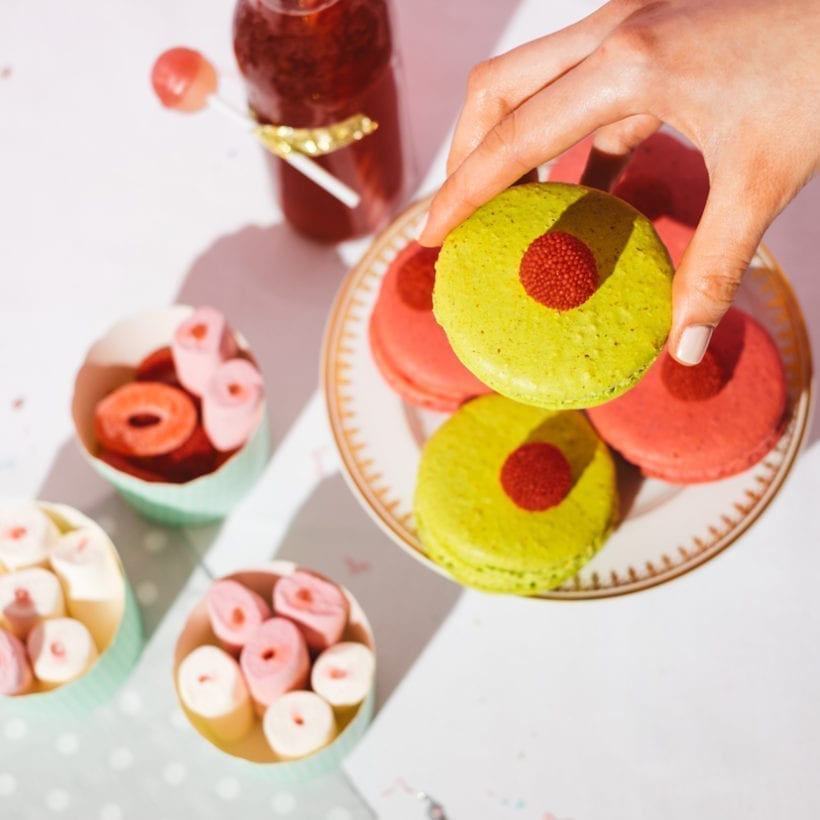On average, Americans consume 77 grams of sugar a day — more than three times the recommended amount for women and twice the amount for men, according to the American Heart Association. You might typically think of sugar predominantly being in soft drinks and sweets, but it’s also found in a ton of foods like soup, deli meat, ketchup, and bread. It’s hard to give up all that good stuff that you love, so sugar substitutes, which are often (but not always!) zero calories, might be the first thing you think about when it comes to trying to be healthier. They’re FDA-approved, but there’s more you should know, especially if you’re trying to use artificial sweeteners in your weight loss journey, to prevent diabetes, or lower your risk for heart disease.
We dive in with Dr. Michelle Green DC, who specializes in holistic health, clinical nutrition, and functional nutrition on a pretty, er, sweet guide on everything sugar and sugar alternatives.
What is sugar and why do we need it?
The Cliff’s Notes version: Sugar is a carbohydrate and it gives us energy (in addition to fat and protein). It’s a natural plant ingredient that’s particularly prominent in sugar beets and sugarcane — its namesake. When we think of that white, powdery stuff (table sugar) that we use in baking and in coffee, that’s sucrose.
The long version: “Sugar is a general term and most often is referring to sucrose. Glucose is another type of sugar found naturally in fruits and vegetables — glucose is what our body needs to turn carbohydrates that give us the energy to function,” says Green. But there’s the type of sugar that we need (glucose), and there’s a different sugar that we want (sucrose). “Sometimes we crave sucrose — the added sugars and white sugars — if we aren’t getting enough glucose or need a boost of energy. If we can decode our cravings, we can realize what our body is really telling us,” she says.
What impact does sugar have on our health?
Even though sugar generally makes food more palatable and enjoyable (we haven’t met a double chocolate cake that we haven’t liked), a high-sugar diet can lead to a number of negative health outcomes. Think: “higher blood pressure, inflammation, weight gain, diabetes, heart disease, stroke, increased risk of cancers, fatty liver disease. Sugar will actually reduce the elasticity of your collagen within your skin, which can then lead to wrinkles. Too much sugar can also cause inflammation which can lead to increased acne-related issues as well. Overall, excess sugar can put the body into a stressed state and when the body is stressed, that is when our health takes a toll,” says Green. Sugar also has a direct impact on cavities and tooth decay — the plaque that’s created from the combination of sugar with your mouth’s saliva and bacteria can break down your enamel.

If you’re thinking about cutting sugar out of your life, you want to make sure with your doctor or nutritionist that it’s the best decision for you. “Cutting down on sugar intake can be beneficial for so many reasons and for just overall health. If you are dealing with a chronic or acute health issue (like diabetes), cutting out sugar is going to help your body heal. If you are already healthy and want to stay healthy, cutting out sugar is going to help you stay there,” she says. However, it’s important to remember that not all sugars are “bad.” “Cutting out sugar completely is not realistic or healthy if you cut out sugar from fruits and vegetables, in addition to added sugars. The sugars from fruits and veggies are a different type of sugar and the benefits from the vitamins, minerals and antioxidants, far outweigh the sugars found in plant food. Therefore, cutting out sugar completely from your diet may not be necessary. The ones you want to avoid are added sugars from processed foods,” she says.
What are the alternatives to natural sugar?
Sugar alternates typically fall into these sub-groups:

Artificial sweeteners
“These synthetic sugar substitutes include aspartame (like Equal), sucralose (aka Splenda), acesulfame potassium (Sunett or Sweet One), neotame (Newtame), and saccharin (including Sweet and Low). You may recognize these zero calorie sugar alternatives in diet sodas or as sugar alternatives in coffees,” says Green. Artificial sweeteners don’t raise your blood sugar levels and there are few or no extra calories, so people might think they aid in losing weight (though there isn’t proof that confirms this for the long term).
Sugar alcohols
“Sugar alcohols are also known as polyols often come from plant sources such as fruits and berries, but can also be synthetically made. They are a mix of sweet carbohydrates, but also have an alcohol component in their chemical makeup. These are recognizable because they often end with -ol,” says Green.
Sugar alcohols such as xylitol don’t cause any tooth decay and can help with weight control, but could also lead to digestive issues (like bloating) if consumed in large amounts. “It can vary from person to person and after time, the body can handle more. To start, people can usually tolerate between 10 and 30 grams of xylitol throughout the day,” says Green. Sugar alcohols are also often used in products such as gums and toothpaste.”
Novel sweeteners
“These come from natural sources and often have less calories while maintaining the sweetness of other sweeteners,” says Green. “Novel sweeteners include Stevia and monk fruit.”
Natural sweeteners
“These are naturally found, however, they may not have the caloric difference. They include ingredients like dates, maple syrup, honey, and agave nectar,” says Green.
Which specific alternative sugars are the most common?
- Aspartame: This artificial sweetener is used often because it doesn’t have any calories, therefore is found in diet sodas most often (it’s 200 times sweeter than sucrose). “Some studies suggest that the artificial sweeteners could still cause weight gain and even cancer. There was also a higher incidence of heart disease and stroke with consumption of artificial sweeteners,” says Green.
- Xylitol: “Sugar alcohols, such as xylitol, are found to be somewhat healthier than the rest. They have less effect on blood sugar and are lower in calories than regular sugar. Although they affect the blood sugar less, they still do affect it and if you’re diabetic, you should definitely limit consumption. They have also been found to be great for teeth as it resists plaque, and it also can feed the good bacteria in your gut by acting as a prebiotic. If too much is consumed, however, it can cause digestive issues so moderation is key,” says Green.
- Honey: “This natural sweetener is high in antioxidants, and it has been found to lower risk of heart disease. It also helps lower blood sugar and cholesterol. Honey is also anti-bacterial and can bring down inflammation in the body. It is full of vitamins and minerals and often very easy to access as you can buy it at any local store. The one thing to watch out for with honey is that it can raise blood sugar, although it is less bad than regular sugar for diabetics,” says Green. The other con to honey is that some people can be allergic, and not appropriate for children under one (it can cause infant botulism).
- Stevia: “Stevia is a zero-calorie novel sweetener that comes from the leaf of the stevia plant. Stevia has been found to be a great alternative for diabetics as well as even lowering blood sugar after meals as well as lower blood sugar. It is also gaining popularity and can be found more and more in local stores. Stevia is high in antioxidants, which research shows can help to fight certain cancers — though more research is needed. Being a zero-calorie sweetener, it helps people consume less calories while still enjoying that sweet taste. Fewer calories can lead to decreased obesity and metabolic disease,” says Green. However, some experts believe that long-term or heavy consumption of Stevia might cause hypoglycemia (or low blood sugar) and blood pressure.
- Maple syrup: “Maple syrup is a natural sweetener that contains many vitamins and minerals, antioxidants, and it may help lower inflammation. It is also helpful for digestion, skin health and fighting cancer. Maple syrup is high in antioxidants which help to reduce free radicals in the body, which will then reduce inflammation. Although this is a healthier option compared to artificial sweeteners and it is pretty common, just make sure to select the darker colored maple syrups as these have been shown to have more antioxidants. The calorie content is also higher so it should be consumed minimally,” says Green.
- Agave nectar: This liquid natural sweetener contains a high amount of fructose (even more than corn syrup). Blood sugar and insulin rise to unhealthy levels when consuming refined sugars like fructor. Refined sugar also digests fast, and therefore, you don’t get full easily and tend to want to eat more overall. However, because agave nectar has a lot of flavor, a little bit goes a long way. It has a long shelf life and is very versatile: It can be used as a replacement for sugar in pretty much any recipe.
- Monk fruit extract: This zero-calorie novel sweetener goes by brand names Swanson Purelo Lo Han, Monk Fruit in the Raw, and Purefruit. Nectresse was a once-popular brand that made monk fruit sweeteners but was recently discontinued due to decreasing sales. Monk fruit extract is also called luo han guo fruit, which is made from a small, green Chinese plant. It’s an intense sweetener (it can be up to 200x sweeter than sugar) so, for instance, you only need about three tablespoons of monk fruit extract if your recipe needs a half-cup of sugar.
- Splenda: Sucralose, an artificial sweetener, is sold under the name Splenda and is nearly 600 times sweeter than sugar. It’s a common sugar substitute during baking and cooking (since it can withstand high temperatures) and it’s been widely studied for its safe consumption.
- Date syrup: This one’s a favorite for being low on the glycemic index (the system that ranks ingredients based on the effect on your blood sugar), and it’s also low in fructose. It’s also packed with nutrients like magnesium, phosphorus, and zinc — apparently crowning it the most nutritionally dense sweetener on the list, according to Just Date.
- Pomegranate molasses: A traditional Middle Eastern ingredient, it’s a simple “syrup” that’s basically pomegranate juice boiled down. It’s rich and tangy in flavor and loaded with vitamins and good-for-you nutrients. It’s a perfect substitute if a cocktail asks for grenadine or you want to add a little zing to a homemade salad dressing. The caveat is that it’s more tart than sweet, so it might not hit the spot if you have a serious sweet tooth.
Are sugar alternatives healthier for you?
It depends on how much you have and what kind you choose. “Although these sugar alternatives allow you to enjoy the pleasures of sweetness without consuming regular refined sugar, you can see that they still have their disadvantages. Some are definitely healthier than others but the key with all of these alternatives is moderation. If you are going to go for a sugar alternative, stevia is my go-to healthy choice,” says Green.
What are some ways to cut out sugar without using alternatives?

“One of the best tricks is to cut out processed foods,” says Green. If you’re craving cake, try a baked apple or a piece of fruit. If you love soda, try flavored seltzer (with a squeeze of natural lemon or lime). “Tons of sugar gets added to your everyday foods without you even realizing it. If you are at the store, you can also check food labels (use apps like The Freshbit, it’s AI-driven visual diet diary app that helps to count carbs — sugars, starches, fiber) and go for the lower sugar alternative. Even small ways of reducing sugar intake adds up!” says Green. “Eating more whole foods such as fruits can alter sugar cravings and give us the energy we need at that moment. If you are craving sweets, ask yourself if you are getting enough carbohydrates during the day. You can also try using natural extracts in different recipes such as almond or vanilla extracts instead of sugar or sugar alternatives,” says Green.
We only recommend products we have independently researched, tested, and loved. If you purchase a product found through our links, Sunday Edit may earn an affiliate commission.







